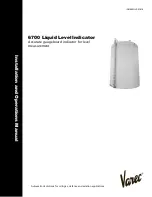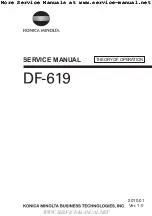
Cautions
•
CAUTION:
BAC units are typically installed immediately after shipment and many operate year round.
However, if the unit is to be stored for a prolonged period of time either before or after installation,
certain precautions should be observed. For instance, covering the unit with a clear plastic
tarpaulin during storage can trap heat inside the unit, potentially causing damage to the fill and
other components. If units must be covered during storage, an opaque, reflective tarp should be
used. For normal seasonal shutdowns, refer to the applicable section in this manual.
•
CAUTION:
All electrical, mechanical, and rotating machinery are potential hazards, particularly for
those not familiar with their design, construction, and operation. Accordingly, use appropriate
lockout procedures. Adequate safeguards (including the use of protective enclosures where
necessary) should be taken with this equipment both to safeguard the public from injury and to
prevent damage to the equipment, its associated system, and the premises.
•
CAUTION:
When reversing the direction of fan rotation, allow the fan to come to a complete stop
before restarting the motor.
•
CAUTION:
Do not use oils containing detergents for bearing lubrication. Detergent oils will remove the
graphite in the bearing sleeve and cause bearing failure. Also, do not disturb bearing alignment by
tightening the bearing cap adjustment on a new unit, as it is torque adjusted at the factory.
•
CAUTION:
Do not use steam or high pressure water to clean PVC eliminators or materials other than steel.
•
CAUTION:
This equipment should never be operated without all fan screens, access panels, and access
doors in place. For the protection of authorised service and maintenance personnel, install a lockable
disconnect switch located within sight of the unit on each fan motor associated with the equipment.
•
CAUTION:
Pressure greater than 69 kPa may cause damage to the distribution system.
•
CAUTION:
Never use chloride or chlorine based solvents such as bleach or muriatic (hydrochloric)
acid to clean stainless steel. It is important to rinse the surface with warm water and wipe with a
dry cloth after cleaning.
Freeze Protection
These products must be protected against damage and/or reduced effectiveness due to possible freeze-up
by mechanical and operational methods. Please refer to the product catalogue or contact the local BAC.






































